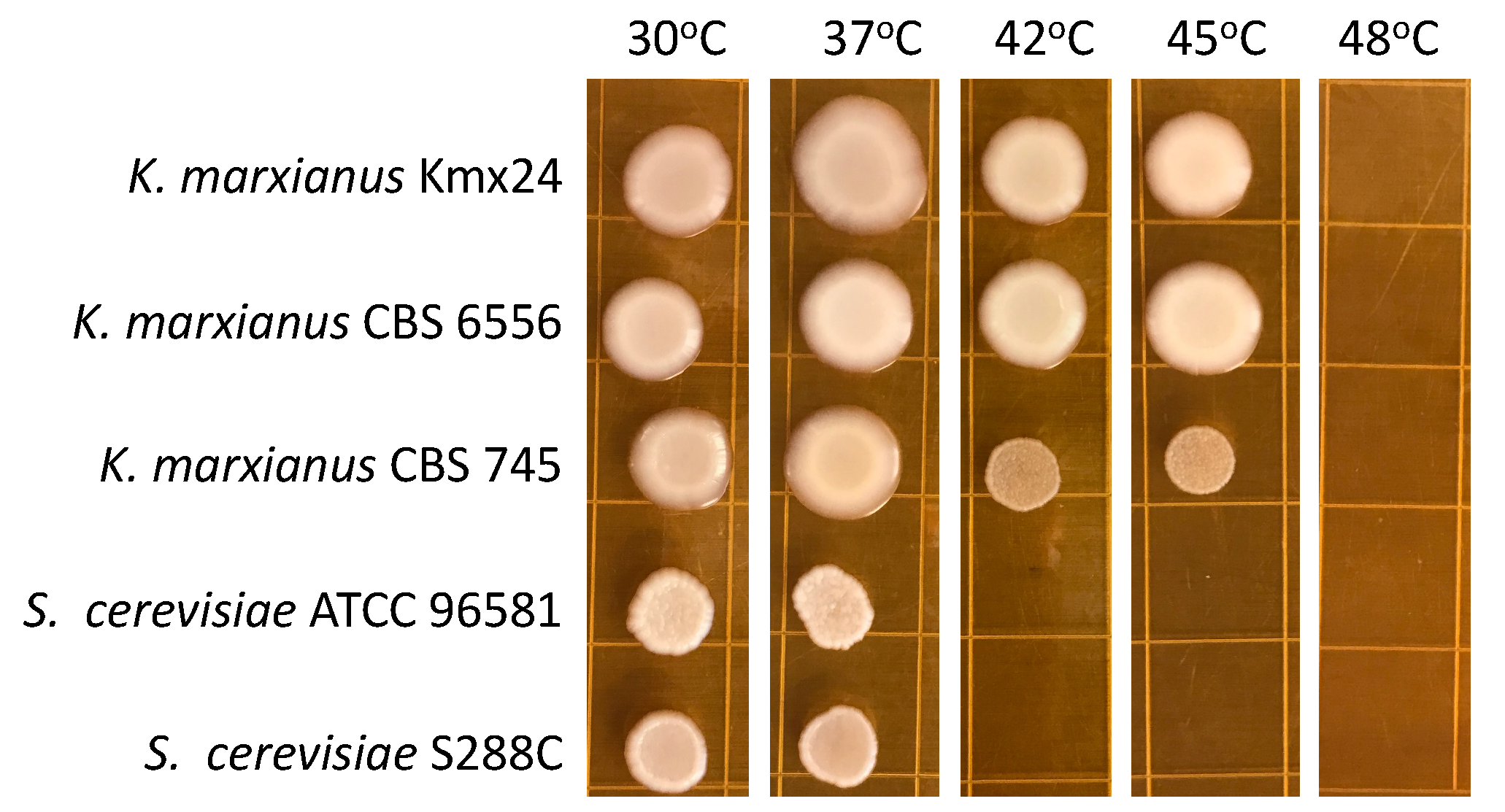 |
|
Kluyveromyces marxianus exhibits a high growth rate and is a promising non-conventional yeast for different biotechnological applications. One of these applications is the production of bioethanol from lignocellulosic hydrolysates at high temperature. Here, a new thermotolerant strain of K. marxianus (Kmx24) was isolated from a cooked henequen core. Its tolerance to acetic acid, one of the most common fermentation inhibitors present in lignocellulosic hydrolysates, was examined. Growth and ethanol production from glucose by Kmx24 were inhibited at acetic acid concentrations > 1.5 g/L. This sensitivity to acetic acid was alleviated by supplementation of the culture medium with KCl/KOH (40/10 mM) both at 30 and 42oC, although the observed effect was not so marked at 42oC. Increased cell viability and cell wall integrity were observed on addition of KCl/KOH in the presence of acetic acid. It is suggested that improved acetic acid tolerance is due to an increase in potassium uptake allowing an efficient proton efflux, increased membrane integrity and strengthened membrane electrochemical potential. The link between KCl/KOH supplementation and cell wall integrity needs further study. Temperature stress caused a decrease in the cell wall integrity which was not relieved by KCl/KOH addition.
Keywords: Kluyveromyces marxianus, bioethanol, acetic acid tolerance, potassium, cell wall.
|
|
 |

